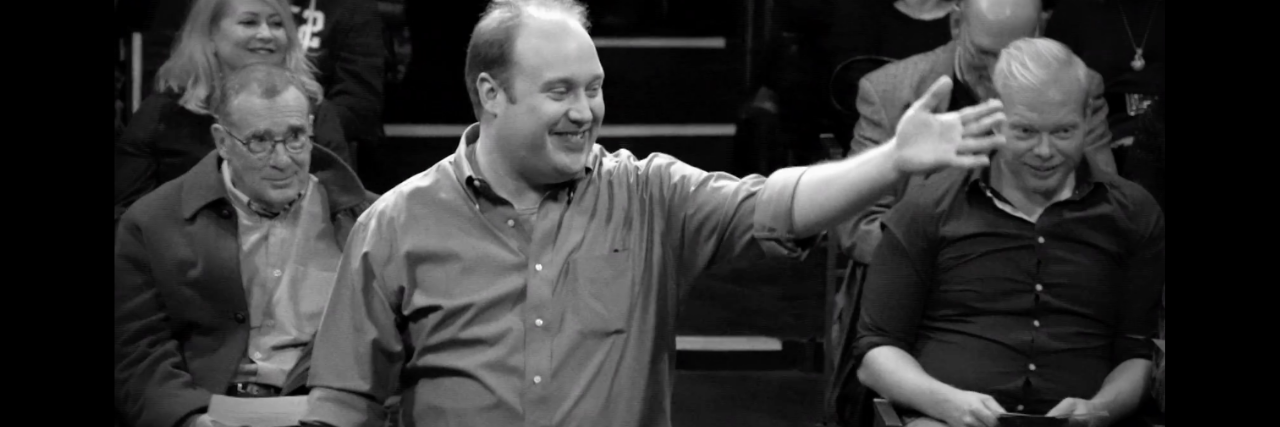I first contemplated suicide in seventh grade. My best friend attempted suicide when I was in eighth grade. I was diagnosed with situational depression in middle school. I was diagnosed with persistent depressive disorder, anxiety and major clinical depression in my senior year of high school. I started self-harming freshman year; I nearly attempted suicide every morning driving to school in my first semester of senior year.
As a child, I missed out on a lot of my childhood. I didn’t have a miserable childhood — my parents and eldest brother shielded me from the worst of it as I was growing up. But then my eldest brother left for college and my other brother became abusive — 150 pounds heavier than me and a foot and a half taller. At first, he was just difficult. I didn’t realize it was abuse when it started. I just knew I was miserable. I knew my friends all thought I was exaggerating. But I wasn’t exaggerating when I had to crawl silently out of my room just to use the bathroom in the hope he wouldn’t see me. I wasn’t exaggerating when he would pick the lock on my door and threaten me. I wasn’t exaggerating when he hit me or made me lick his feet for his entertainment. I wasn’t exaggerating the terror I felt when he threatened to kill me with his dagger. But because of the reaction of my peers, I began to think perhaps I was just exaggerating.
I grew up in the shadow of mental illness, not realizing how deep of an impact it would make on me. I spent long nights in the plastic chairs of hospital waiting rooms. I spent hours waiting in doctor’s offices. I spent nights listening to my brother’s angry shouts. As a child, I handled it much better. I was happy and proud to help my parents take care of my brother. But as a teenager, I was resentful, bitter and isolated. I had missed out on important developmental moments with friends as a child, making it harder to make friends in middle and high school.
When my own depression began in earnest, it was self-deprecating, shameful, guilt-ridden and angry. I had life so much better than my brother; I had no right to feel this way. Every day I heard how much further in life I would go than my brother. Every day I heard how lucky I was.
“Every Brilliant Thing,” a play by Duncan Macmillan and Jonny Donahoe that’s currently available on HBO, resonated with me in a way that nothing ever has. I’ve coped with my depression through dark humor my entire life. I didn’t have a way to release what I was feeling so I made jokes out of it. My adoption, my abusive brother, disappointment — anything that was upsetting. But my gallows humor was always “too real” for others to laugh at. “Every Little Thing’s” humor and wit work together to bring the harsh realities of depression, suicide and mental illness into a discussion. It makes the incomprehensible and the unexplainable understood in a way that nothing ever has.
My story and “Every Brilliant Thing” (we’re gonna call the main character Marcus now because he/she is unnamed in the play) are so different, but at the same time, exactly the same. Marcus had moments of joy in his childhood; he also had moments of shame. Marcus began as a naive and optimistic child, became an angry teenager and struggled as a morose adult. But the list kept him going through it all. I believe even the times he wasn’t consciously thinking about the list, it was supporting him.
Just like Marcus, I was a naive and optimistic child. As Marcus begins to understand the gravity of his mother’s situation, he throws himself so strongly into his list that it becomes his lifeline. For me, it was school. I became obsessed with school. If my grade slipped under 95% I was disappointed in myself. But this, I could control. This was all me, my brother couldn’t touch this. But then, as Marcus did, I became an angry teenager. Angry at the situation, my brother, my parents, but most of all myself. Now as a young adult, my anger turned inward has left me struggling with the most severe depression of my life.
“Every Brilliant Thing” is a play came into my life exactly when I needed it most. It told my story better than I could have ever told it myself. Right now, I cling to Marcus’s advice to anyone contemplating suicide: Don’t do it. Things get better. They might not always get brilliant. But they get better.
Image via HBO trailer

